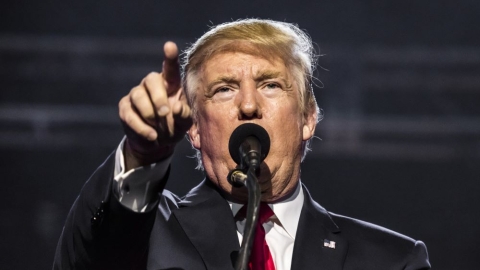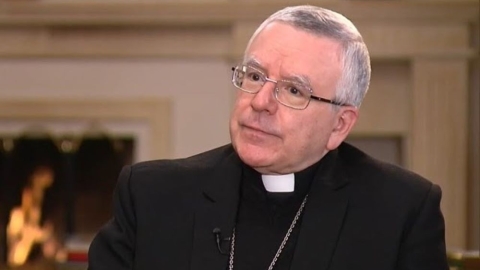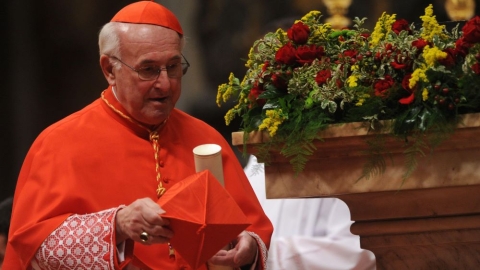Hong Kong: Confidentiality of the Sacrament of Confession Threatened

The Legislative Assembly of the former British colony of Hong Kong is preparing to adopt in record time the National Security Law presented on March 8, 2024. This bill takes the repression of all forms of dissent in Hong Kong to a new, unprecedented level: such as life imprisonment for the crime of “treason,” and up to ten years for those accused of “sedition.”
The Draft Article 23
This so-called “Article 23” bill, a local version of China’s National Security Law, will take the crackdown on free speech in Hong Kong to an even more brutal level than the previous version. Officially, it is a local law intended to implement a point of the Basic Law – the law that governs Hong Kong's return to China.
Article 23 provides specific law to punish crimes that endanger national security. In 2003, the Hong Kong government at the time had already tried to adopt a law on the subject, but it was stopped by a wave of popular protests. Today, John Lee prepares to complete the job.
If Hong Kong's national security law comes into force as it was published on March 8 (and there is no reason to doubt it, given the absence of real political debate), it will be now possible to be sentenced to life in prison for crimes such as “treason,” “insurrection,” and “threatening the sovereignty of China.”
For the offense of “sedition” the maximum sentence will increase from 2 to 7 years in prison, with the possibility of increasing it to 10 years in the event of collusion with an “external force.” The new law defines “seditious intent” as inciting hatred, contempt or disaffection towards China, its apparatus in Hong Kong, but also the city's government and legal system.
Thus, the simple fact of owning a copy of the Apple Daily – the pro-democracy newspaper founded by Jimmy Lai and muffled by the arrest of its leaders and the freezing of its bank accounts in 2021 – in the new version of the law on national security currently being discussed in Hong Kong, could become a crime.
The text also gives the police new powers to restrict detainees' access to their lawyers or to withdraw their passports and prohibit any financial transaction under certain conditions: a measure which targets members of the pro-democracy movement who have taken refuge abroad.
The proposed law finally envisages an offense defined as “negligent treason,” which aims to target people who have knowledge of behavior undermining state security (as understood by the Hong Kong authorities), but who do not report it. In this case, the person can be prosecuted and face a sentence of up to 14 years of imprisonment.
The Confidentiality of the Sacrament of Confession
This latter provision provoked the reaction of 16 international experts on freedom of religion and belief who expressed their “deep and serious concern” about the implications of the new law on security.
Because the new law could have serious consequences on the secrecy of confession, say the signatories of the letter, who are “deeply alarmed” by this provision. By law, a priest would be obligated to reveal what was said during confession.
Such an offense therefore constitutes a specific threat to religious communities. During the popular consultation, they raised the question of ministers of religion receiving confidential information linked to their role (in particular the Catholic priest for the secrecy of confession). The Hong Kong authorities did not respond to the objection, limiting themselves to saying that this paragraph does not apply “to those who have a recognized right on the basis of their professional status.”
Unfortunately, this new law will not surprise anyone who has studied Marxist, Leninist, or Communist doctrines. Moreover, the Constitution of the People's Republic of China defines the country as “a socialist state of popular democratic dictatorship.” The important word is “dictatorship,” as everyone understands.
To better comprehend the nature of this dictatorship, it is enough to compare what is happening in Hong Kong and Beijing's protest in the face of the threat that the United States poses to Tik Tok: on March 13, 2024, the House of Representatives adopted a proposed law to ban the Chinese social network in the United States if it does not cut ties with its parent company, ByteDance.
Chinese Foreign Ministry spokesperson Wang Wenbin responded in the press. “If a so-called pretext of national security can be used to arbitrarily exclude successful companies from other countries, then there is no more equity or justice,” he lambasted.
But crushing innocent citizens and threatening the most sacred freedoms, in the name of this same national security is certainly very virtuous... A typically Marxist posture, which considers as “good” everything that favors democratic “dictatorship,” and as “ bad” everything that opposes it.
Related Article:
(Sources : Catholic Herald/InfoCatolica/Asianews/Wikipédia/RTS – FSSPX.Actualités)
Illustration : © Asianews





